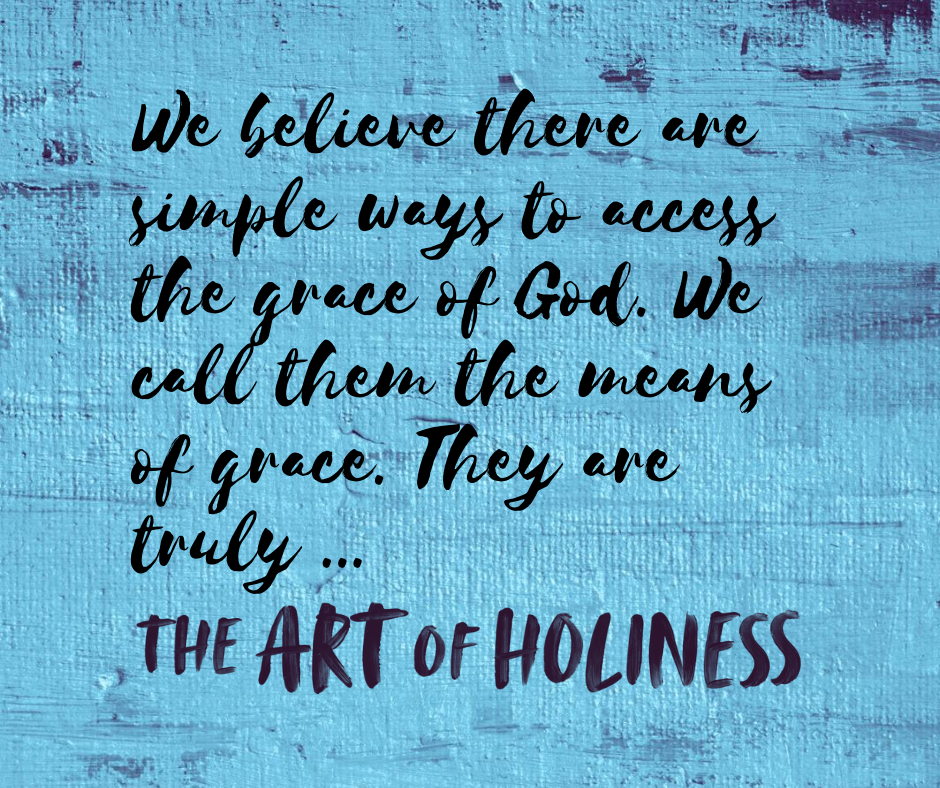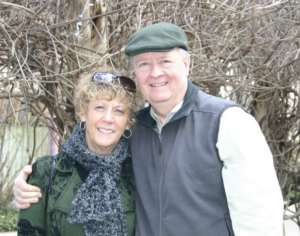Friends, I grieve as I offer this prophetic word: We as a country are grace-deprived. This season has exposed a sad (and I sense severe) lack of trust. We don’t trust one another’s good intentions, nor believe we want the best for each other. We live with what someone has called “grace insecurity.” That posture has created a suspicious, angry culture defined by disunity.
Kevin Queen, pastor of Cross Point Church in Nashville, believes the angst and churning of this season is the result of a “spiritual low tide.” In a spiritual low tide, the water has receded and we can see what has gotten stuck in the muck. We discover that there are areas of our lives or our corporate life that we thought were more mature or productive than they are. But now the tide has gone out and we can see embedded in the muck of this “low tide” some areas we thought we’d made progress in, that maybe we haven’t. Like racial justice. Or emotional maturity in debate. Or unity in times of crisis. No wonder we are rife with conspiracy theories; this atmosphere breeds them like mushrooms in rainy weather.
Perhaps what has most revealed itself in this low tide — what has shown up in the muck that’s left when God pulls back — is a lot of distrust. We have revealed ourselves, in this odd combination of unnatural spiritual distancing and a very natural survival instinct, as lacking in grace.
Spiritually and emotionally, we’re starting to get that low-tide smell.
The good news is that this is true only horizontally, not vertically. God’s grace has not stopped flowing. We’ve just stopped (or have gotten stalled) channelling it. And yet, we’re starved for some real grace. I want to testify that in this season, I’ve felt not only the need for it, but the blessing of grace. I’ve sensed the strength of God’s grace, not just salvation grace but maybe even more … daily grace. I’m aware of a deeper grace that requires more surrender, more sensitivity … and it is just begging to break through.
There is a story in the Old Testament of a time when Jacob was dealing with his family, dealing with God, dealing with himself. Isaac has just sent his son Jacob off to find a wife. Jacob has to go on a journey to find her, and along the way he stops out in the wilderness for the night to sleep, using a rock for a pillow. While he’s sleeping he has a dream about stairway that reaches from earth to heaven (yes! a stairway to heaven!) and in this dream he hears that he will indeed have a family — one that covers the earth it is so vast. Jacob hears a word from the Lord in this dream. God says, “I am with you, and I will protect you wherever you go. One day I will bring you back to this land. I will not leave you until I have finished giving you everything I have promised you.”
When Jacob wakes up, he says, “Surely the Lord is in this place and I wasn’t even aware of it!” (Genesis 28:16)
That’s grace. It is God reaching out and down and speaking and inviting and investing. And sometimes we feel it and sometimes we don’t, and sometimes we participate in it and sometimes we don’t. And my sense is that right now in this low-tide season God’s grace is there and is inviting us in and our part is to find ways to access it.
This is the brilliance of our particular brand of faith. We believe there are very simple ways to access the grace of God. We call them “the means of grace.” They are the very art of holiness — simple, everyday practices that somehow signal to God our willingness to participate with him in the work of welcoming his Kingdom on earth. In other words, there are things — tried and true things, things that have proven over centuries, millennia even — that seem to pull back the curtain on the power of God’s love.
We don’t generate his love by doing these things, but somehow we become more aware of it as we make ourselves more accessible to him … to his grace. We become aware and can say with Jacob, “Surely God is here, and I didn’t even realize it.” And as we access that grace, we bring it into this world that is starving for it, into this world that is suffering what someone has called a grace insecurity. God’s grace pours out over us in places like baptism and communion but there are other daily practices too, like:
- Prayer — which can happen in all kinds of ways, and all kinds of postures.
- Singing and worship
- Spiritual reading — both scripture and sacred books.
- Fasting – nothing releases the grace of God quite like fasting.
- Exercise — remember that Jesus told us to love God with all our heart, soul, mind and strength.
- Love — yes, as a discipline. Intentional spiritual friendship and accountability and intimacy with others is a means of grace.
- Solitude — which you may have had your fill of, but without silence and solitude, there can be no spiritual formation.
Routines like these are how we love the Lord “with all our heart and soul and mind and strength” (Mark 12:30). And how we clear heart and mind and soul and strength.
Remember: they are called “means of grace,” not means of guilt. Routine without grace is just rules laced with guilt. But holy routines are anchors. My friend Talbot Davis wrote recently about the five lies he has removed from his life. One of the lies is “Think outside the box.” And (Talbot says), “What could possibly be wrong with thinking outside the box? I thought that’s what we’re all supposed to be doing these days. Think outside the box … right?”
But Talbot wrote this: “I’d rather assemble a really good box and dive into it repeatedly for both wisdom and creativity. Ridding myself of this cliche has been important for my own growth as a leader — it keeps me from being scattered by keeping me centered.”
I think that’s brilliant. Not every box needs to be gotten outside of. Some boxes have stood the test of time and have proven over generations to be solid and dependable. It is why I don’t give up on in-person worship or on my daily routine of scripture and prayer. Classic spiritual disciplines are time-honored practices that have proven over and over to breed centered, peaceful, living.
So maybe instead of thinking outside the box, you need to build yourself a box of grace out of some time-honored practices. Build yourself a box and put into it a few routines that will help you feel a little more “normal” and that will give you more chance to hear God and say with Jacob, “Surely He is here, and I didn’t even know it!”








